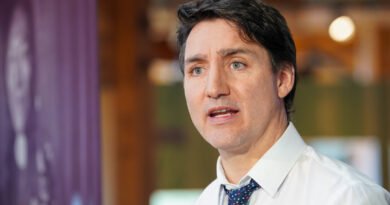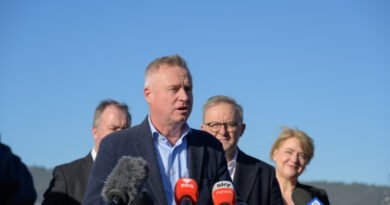Ethnic Communities’ Perception of The Voice: What Do They Think?
As the campaign for Prime Minister Anthony Albanese’s proposed “Voice” referendum approaches its final stages, newer Australians are starting to pay attention. In discussions with leaders of various ethnic communities, it’s apparent that their community members prioritize working hard and achieving financial stability for their families. Given this, constitutional referendums aren’t a top priority for many new immigrants. While these immigrants want to see everyone, including Indigenous Australians, succeed, they are naturally skeptical of vague promises from the elites.
The Australian Jewish Association, the country’s largest Jewish organization in terms of social media following and community engagement, has received an overwhelming amount of opposition to The Voice. This issue has garnered more feedback than any other since the association began its work. So why am I confident that minorities will largely reject this divisive racial division?
Members of migrant communities tend to hold traditional values in high regard. From a religious perspective, the belief that all people are created in the image of God is foundational. This belief promotes equality and emphasizes that all individuals should be treated equally. It is integral to various traditions, including Judaism and Christianity. Reverend Martin Luther King, a prominent advocate for civil rights, famously spoke of his dream that his children would be judged by their character rather than the color of their skin. History teaches us valuable lessons, and the Jewish Community in Australia, which dates back to the First Fleet but consists mostly of those who arrived after World War II, fled from places that practiced racial division. Many Australian Jews left South Africa, where apartheid and racial privilege were deeply entrenched. Others come from the Soviet Union, where communist authorities stamped identity cards with individuals’ ethnicity, leading to severe persecution of Jews. Chinese-born Australians are familiar with communist overreach and understand the dangers of CCP-style monitoring and division. However, even freedom-loving countries can fall victim to race divisions. In the United States, Ivy League universities maintained quotas on Jewish students for a long time, and Asian students faced discrimination based on race under the guise of “affirmative action” until the Supreme Court invalidated it. We must fight against such discrimination in Australia.
Aboriginal leaders who have addressed the Australian Jewish Association, such as Jacinta Nampijinpa Price and Warren Mundine, have made it known that the proposed Voice won’t truly represent their voices. So whose voice will it represent? The Green and Teal parties, along with wealthy white inner-city elites, are the loudest proponents of The Voice. A group of Yes campaign activists approached me recently, and it was apparent that the group lacked diversity. But then again, who has the time to knock on doors at 1 p.m. on a weekday when most people are at work? However, there is a more concerning group that The Voice will amplify—the voice of radical left-wing inner-city activists. The Jewish community has experienced the hatred of these extremists, who often have equal disdain for Australia and Israel. Many of them participated in a racist boycott of the Sydney Festival last year over the involvement of an act connected to the Jewish state. The potential disaster arises when The Voice starts influencing Australia’s foreign policy. When the Australian Jewish Association raised concerns about The Voice, an Aboriginal elder told us to “go back to Jerusalem.” This incident foreshadows what could happen if The Voice succeeds. Migrant communities understand that if Jews, who have been in Australia since the First Fleet, are being told to go back to their origins, then newer migrant communities will be targeted next. Citizenship rights should not depend on the arrival time of an individual’s ancestors.
Opposing The Voice does not mean opposing assistance to Aboriginal people. In the 1970s, Fred Hollows traveled to outback communities and performed low-cost eye surgeries without the need for a government Voice. He personally visited 460 Aboriginal communities, examined 62,000 people, treated 27,000 for trachoma, and performed 1,000 operations. Fred Hollows took initiative, got in his 4-wheel drive, and made a difference. This approach is far preferable to the bureaucratic nature of The Voice. Racial segregation is not the solution. If someone needs help, we should provide it regardless of their skin color. Poverty and suffering do not discriminate based on race. On October 14, I am confident that Australians will reject the divisive Voice promoted by Anthony Albanese and the elites. Likewise, I am confident that Australia’s diverse ethnic communities will say no to The Voice and the intolerance it represents. Together, let’s build a better and more inclusive nation, without granting special race-based rights or privileges to anyone. Please note that the views expressed in this article are the author’s opinions and do not necessarily align with those of The Epoch Times.




